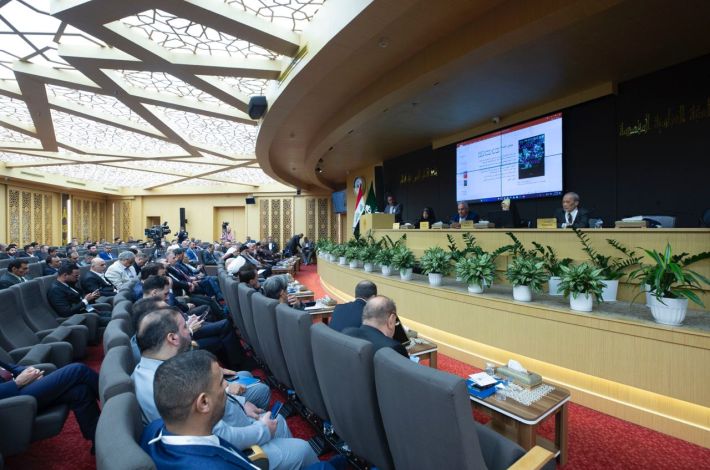The two-day conference was organized by the Iraqi Center for Documenting Extremism Crimes, affiliated with the Intellectual and Cultural Affairs Department of the holy shrine, in collaboration with the UNESCO Chair for Genocide Prevention Studies at the College of Arts, University of Baghdad, and the Martyrs and Political Prisoners Institutions, the Supreme National Commission for Accountability and Justice, and the University of Baghdad, under the slogan (For a Future Free from Pain) and the title (Memory of Pain in Iraq: A Century of Crimes, Genocides, Massacres, and Violations).
The closing ceremony was attended by the Secretary-General of the Al-Abbas's (p) Holy Shrine; Sayed Mustafa Murtada Aal Dia-Uddin, his deputy, Engineer Abbas Mousa Ahmed, the Director of the Office of the Shrine's Senior Official; Sayed Jawad al-Hasnawi, along with its officials and official, religious, and academic figures from inside and outside Iraq.
The first day's activities included two research sessions that discussed several studies in Arabic and English about the various events that Iraq has experienced and the crimes committed against its people by the Ba'ath regime and extremist groups.
The area between the two holy shrines witnessed the opening of a photo exhibition that included more than 250 historical photos and documents related to the crimes committed against the Iraqi people of various components and sects. Additionally, a solidarity stand was organized with the victims of extremist crimes, along with a workshop that highlighted the Speicher massacre. An interactive presentation using virtual reality (VR) technology documented the genocide against the Yazidis in Sinjar district in 2014, shedding light on one of the most heinous crimes in modern history.
As for the second day of the conference, it included a panel discussion on the victims of extremist crimes, in which several victims participated, along with holding four research sessions and one electronic session that covered various research topics.
The conference concluded by honoring the participating researchers and contributors who helped make the event a success.
The conference aims to move beyond the past by building an Iraqi national identity that opposes extremism, in order to ensure a safe future for the coming generations free from pain, and to document the crimes of extremism and present them to the international public opinion; to contribute to addressing the social and psychological impacts of violence, genocides, crimes, and violations.













